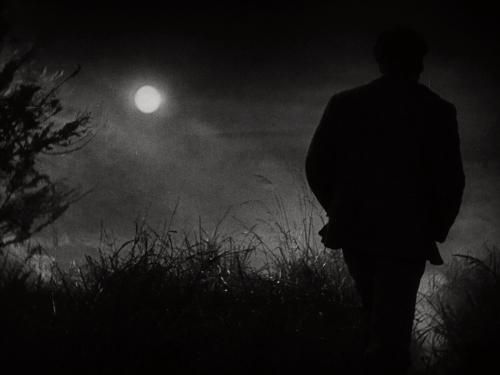
Th[e] introductory intertitle, […] allows us to read in Sunrise (1927), far more than its inconsistent “philosophical” pretext, its major signifying articulations – namely, an in order of appearance: dramatis personae, but not characters in the traditional sense (the absence of names reduces the introduction of individuals to pure roles, networks of functions and attributes); time, but not history (the narrative refuses any relation to a real chronology, any temporality beyond the segmentation on which it is founded: the times of day); places, but not geography (purely fictive locations, referring to no extra-filmic reality); and finally the film’s tones, the curious “mix of genres” it produces.